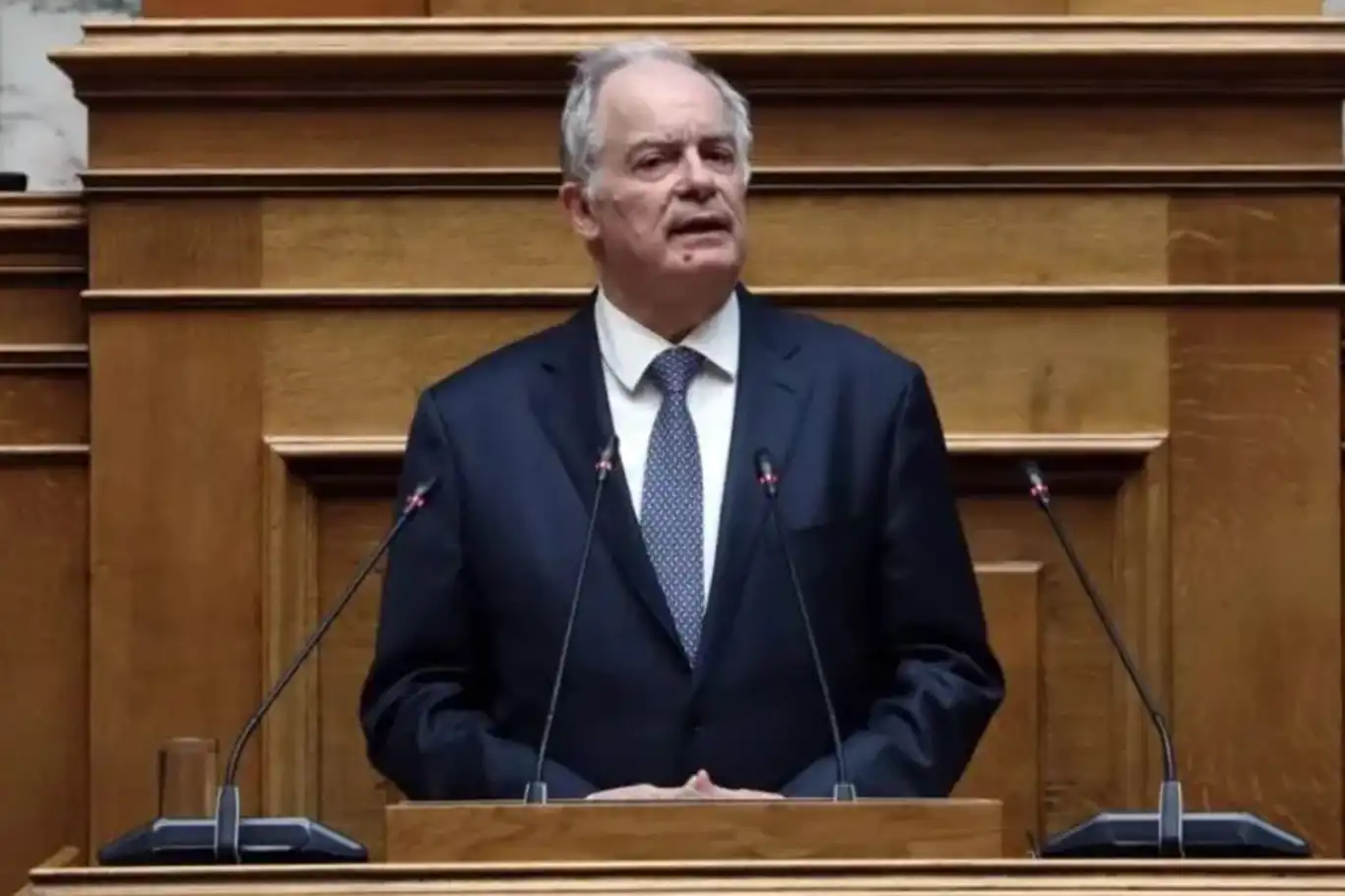Konstantinos Tasoulas elected as Greece’s new president


Konstantinos Tasoulas, a candidate from the ruling New Democracy party, was elected as Greece’s new president on Wednesday in the fourth round of voting in the country’s parliament.
Tasoulas secured the presidency with 160 votes, surpassing the required 151-vote threshold in the 300-seat parliament, and is set to be sworn in on March 13, succeeding outgoing President Katerina Sakellaropoulou, whose term expires in March.
The election process, which required multiple rounds due to a lack of consensus in earlier votes, saw 276 lawmakers participate in the final round. Tasoulas competed against three other candidates: Tasos Giannitsis of the Panhellenic Socialist Movement (PASOK), who received 34 votes; Louka Katseli of the Radical Left Coalition (SYRIZA), who garnered 29 votes; and Kostas Kyriakou of the Victory Party, who obtained 14 votes. Thirty-nine lawmakers abstained from voting.
The presidency election reached a fourth round after none of the candidates secured the necessary votes in the initial three rounds, as required by Greece’s electoral process. Tasoulas’ victory marks the end of a closely watched contest, with his win reflecting strong support from the ruling New Democracy party and its allies in parliament.
Tasoulas, a seasoned politician, brings significant experience to the role. Prior to his candidacy for president, he served three terms as Speaker of Parliament, where he earned a reputation for broad parliamentary support, having been elected to the speakership with the highest number of votes in Greek history. Upon his nomination for the presidency by Prime Minister Kyriakos Mitsotakis, Tasoulas was required to step down from his role as parliamentary speaker, paving the way for his presidential bid.
In Greece, the president holds a largely ceremonial position, with limited executive powers. The role is primarily symbolic, involving duties such as representing the state in official capacities, signing laws, and presiding over certain ceremonial events. Despite its limited political influence, the presidency is seen as a prestigious office, and Tasoulas’ election is expected to bring continuity and stability to the role.
Tasoulas’ swearing-in on March 13 will mark the beginning of his five-year term as president, during which he will represent Greece on the national and international stage. His election comes at a time when the country continues to navigate economic recovery, regional challenges, and domestic political dynamics, with the New Democracy government under Mitsotakis maintaining a strong parliamentary majority.
The outcome of the vote has been welcomed by supporters of New Democracy, who view Tasoulas as a unifying figure with a proven track record in parliamentary leadership. Political analysts are now watching how Tasoulas will approach his new role, given his extensive experience in Greek politics and his reputation for fostering cross-party dialogue during his tenure as Speaker. (ILKHA)
LEGAL WARNING: All rights of the published news, photos and videos are reserved by İlke Haber Ajansı Basın Yayın San. Trade A.Ş. Under no circumstances can all or part of the news, photos and videos be used without a written contract or subscription.
The international humanitarian organization IHO EBRAR has distributed essential food aid packages to hundreds of vulnerable families across Ethiopia, providing critical relief in regions severely affected by food insecurity and widespread hardship.
Two US service members and a US civilian were killed, and three other American troops were injured, in an ambush carried out by an ISIS (Daesh) gunman in Syria, the US Central Command (CENTCOM) said on Saturday.
Venezuelan Defense Minister Vladimir Padrino López has sharply accused the United States of deliberately escalating tensions and seeking to provoke a military conflict in Latin America and the Caribbean.
Four Palestinians were killed on Saturday afternoon after an Israeli drone bombed a civilian vehicle near the Nabulsi junction, southwest of Gaza City, in what Palestinian sources described as a fresh violation of the ceasefire agreement.